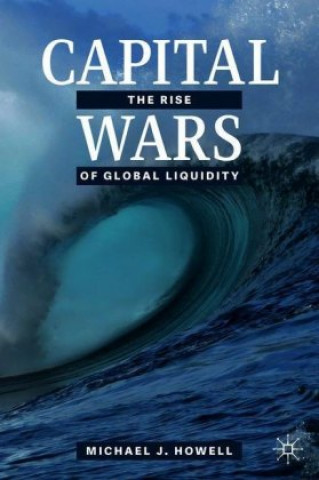
Kód: 25352104
Capital Wars
Autor Michael J. Howell
Economic cycles are driven by financial flows, namely quantities of savings and credits, and not by high street inflation or the level of interest rates. Their sweeping destructive powers are expressed through Global Liquidity, a ... celý popis
- Jazyk:
 Angličtina
Angličtina - Vazba: Pevná
- Počet stran: 304
Nakladatelství: Springer Nature Switzerland AG, 2020
- Více informací o knize

1771 Kč
Dostupnost:
50 % šance Máme informaci, že by titul mohl být dostupný. Na základě vaší objednávky se ho pokusíme do 6 týdnů zajistit.
Máme informaci, že by titul mohl být dostupný. Na základě vaší objednávky se ho pokusíme do 6 týdnů zajistit.Prohledáme celý svět
Mohlo by se vám také líbit
-

The End of the World Is Just the Beginning
678 Kč -

Origin of Wealth
853 Kč -

Right Call
463 Kč -

Danielle Collins' Face Yoga
303 Kč -

McDonnell Douglas F/A-18 Hornet And Super Hornet Owners' Workshop Manual
811 Kč -

Naturalist's Guide to the Mammals of Sri Lanka
376 Kč -

Star Wars: The Lightsaber Collection: Lightsabers from the Skywalker Saga, the Clone Wars, Star Wars Rebels and More (Star Wars Gift, Lightsaber Book)
848 Kč -

Picture Perfect Food
427 Kč -

How to Be an Artist
277 Kč -

How to Paint Landscapes Quickly and Beautifully in Watercolor and Gouache
586 Kč -

Wizard of Oz
433 Kč -

Welcome Home
404 Kč -

Borderline Personality Disorder Workbook
513 Kč -

Neo Tarot
596 Kč -

English B for the IB Diploma Teacher's Resource with Digital Access
1530 Kč -

Vogue(r) Knitting: Norah Gaughan: 40 Timeless Knits
606 Kč -

Harry Potter: Page to Screen: Updated Edition
1612 Kč -

Jurassic Park
290 Kč -

Crooked Kingdom
229 Kč -

Orochi: The Perfect Edition, Vol. 1
558 Kč -

Nkjv, Encountering God Study Bible, Leathersoft, Black, Red Letter, Comfort Print: Insights from Blackaby Ministries on Living Our Faith
1827 Kč -

She Loves to Cook, and She Loves to Eat, Vol. 2
318 Kč -

Elden Ring Official Strategy Guide, Vol. 1
1544 Kč -

Art of Computer Programming, The, Volumes 1-4B, Boxed Set
7607 Kč -

Moon Valley Coloring Book
368 Kč -

Twisted Hate
213 Kč -

Purr-Fect Family Visit (Gabby's Dollhouse Storybook)
173 Kč -

Hell Followed with Us
454 Kč -

Ocean Anatomy: The Puzzle (500 pieces)
472 Kč -

Win, Lose, Kill, Die
268 Kč -

Laziness Does Not Exist
381 Kč -

Kawaii Crochet Garden
436 Kč -

Tarot of Curious Creatures
625 Kč -

Birds, Bees & Blossoms
420 Kč -

Signs
323 Kč -

Return of the King
543 Kč -

Pitch Anything
490 Kč -

Merchant of Venice
117 Kč -

Fifty Places to Dive Before You Die: Diving Experts Share the World's Greatest Destinations
539 Kč -

Art of War
199 Kč -

The Five Dysfunctions of a Team
558 Kč -

Lord of the Flies
247 Kč -

A Pattern Language
1798 Kč -

Either/Or
357 Kč -

Single Man
250 Kč -

Little Kids First Big Book of Why
322 Kč -

Foundation
276 Kč -

Haikyu!!, Vol. 2
224 Kč -

A People's History of the United States
447 Kč -

Liquid Intelligence
797 Kč -

Ellen Harmon White
5442 Kč -

Devil in Winter
135 Kč -

Reading Theory Now
1203 Kč -

Percy Jackson and the Last Olympian (Book 5)
191 Kč -

Cambridge Guide to Orchestration
4449 Kč -

Divergent Series Box Set (Books 1-4)
836 Kč -

In the Kingdom of Ice
462 Kč -

Heating Services in Buildings - Design, Installation, Commissioning and Maintenance
2548 Kč -

Everlasting Hope
443 Kč -

Mein Kampf
809 Kč -

Special Strength Training
1629 Kč -

Demigods & Magicians
322 Kč -

Paw Patrol Phonics Box Set
383 Kč -

ScandiKitchen: Fika and Hygge
531 Kč -

Harry Potter Adult Hardback Box Set
3288 Kč -

Attack On Titan 20
279 Kč -

Work Rules!
378 Kč -

National and Regional Parliaments in the EU-Legislative Procedure Post-Lisbon
4350 Kč -

Senso Monsterlab / Monster Maker
3347 Kč -

Handkonkordanz zum griechischen Neuen Testament
875 Kč -

Balladyna
63 Kč -

Cztery umowy
123 Kč -

Przesniona rewolucja
211 Kč -

Harry Potter und die Kammer des Schreckens
433 Kč -

Sachen suchen: Im Winter
179 Kč -

Soldados de Salamina. Novela Gráfica / Soldiers of Salamis: The Graphic Novel
566 Kč -

La Vendée-Vengé le génocide franco-français
750 Kč
Dárkový poukaz: Radost zaručena
- Darujte poukaz v libovolné hodnotě a my se postaráme o zbytek.
- Poukaz se vztahuje na celou naši nabídku.
- Elektronický poukaz vytisknete z e-mailu a můžete ihned darovat.
- Platnost poukazu je 12 měsíců od data vystavení.
Informovat o naskladnění knihy
Zadejte do formuláře e-mailovou adresu a jakmile knihu naskladníme, zašleme vám o tom zprávu. Pohlídáme vše za vás.
Více informací o knize Capital Wars
Nákupem získáte 177 bodů
 Anotace knihy
Anotace knihy
Economic cycles are driven by financial flows, namely quantities of savings and credits, and not by high street inflation or the level of interest rates. Their sweeping destructive powers are expressed through Global Liquidity, a US$130 trillion pool of footloose cash. Global Liquidity describes the gross flows of credit and international capital feeding through the world's banking systems and wholesale money markets. The huge jump in the volume of international financial markets since the mid-1980s has been boosted by de-regulation, innovation and easy money, with financial globalization now surpassing the peaks of integration reached immediately prior to WWI. Global Liquidity drives these markets: it is often determinant, frequently disruptive and always fast-moving. Barely one fifth of Wall Street's huge gains over recent decades have come from earnings: rising liquidity and investors' appetite for riskier financial assets have propelled stock prices higher. Similar experiences are shared worldwide and even in emerging markets, such as India, flat earnings have not deterred waves of foreign money and domestic mutual funds, fuelled by aspiring middle-class investors, from driving-up stock prices. Now with Central Banks actively pursuing quantitative easing (QE) policies, industrial corporations flush with cash and rising wealth levels among emerging market investors, the liquidity theory of investment has never been more important. International spill-overs of these rapacious cross-border flows sets-off capital wars and exposes the unattractive face of liquidity called 'risk'. As the world grows bigger, it also gets ever more volatile. From the early 1960s onwards, the world economy and its financial markets have suffered from three broad types of shocks-labour costs, oil and commodities and global liquidity. Financial markets spin on fragile axes and the absence of liquidity often provides a warning of upcoming troubles, such as ahead of the 1966, 1972, 1981, 1990, 1998 and 2008 crises. Global Liquidity is a much-discussed, but narrowly-researched and vaguely-defined topic. This book deeply explores the subject by clearly defining and measuring liquidity worldwide and by showing its importance for investors. The roles of central banks, shadow banking, the rise of Repo and growth of wholesale money will be discussed. Coverage also includes the latest developments in China's increasingly dominant financial economy and the potential for the wider use of the Chinese Yuan as a rival to the US dollar in international markets.
 Parametry knihy
Parametry knihy
1771 Kč
- Plný název: Capital Wars
- Podnázev: The Rise of Global Liquidity
- Autor: Michael J. Howell
- Jazyk:
 Angličtina
Angličtina - Vazba: Pevná
- Počet stran: 304
- EAN: 9783030392871
- ID: 25352104
- Nakladatelství: Springer Nature Switzerland AG
- Hmotnost: 662 g
- Rozměry: 163 × 243 × 23 mm
- Datum vydání: 25. March 2020
Oblíbené z jiného soudku
-

House of Morgan
532 Kč -

Market Wizards
573 Kč -

Real Book of Real Estate
439 Kč -

Complete TurtleTrader
330 Kč -

Candlestick Course
1500 Kč -

Going Infinite
492 Kč -
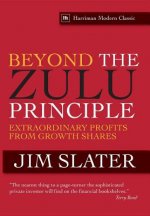
Beyond the Zulu Principle
625 Kč -

Quantitative Momentum
954 Kč -

The Alchemy of Finance
538 Kč -

How to Make Money in Stocks: A Winning System in Good Times and Bad, Fourth Edition
490 Kč -
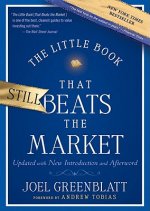
The Little Book That Still Beats the Market
538 Kč -
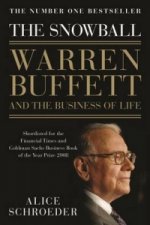
The Snowball
356 Kč -

Common Stocks and Uncommon Profits and Other Writings
517 Kč -

New Market Wizards
433 Kč -

Fooled by Randomness
260 Kč -

Intelligent Investor
678 Kč -
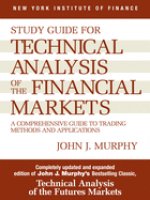
Study Guide to Technical Analysis of the Financial Markets
857 Kč -

Options, Futures, and Other Derivatives, Global Edition
1899 Kč -

Learn to Earn
385 Kč -

Rule No. 1
303 Kč -

Where Are the Customers' Yachts? or A Good Hard Look at Wall Street
448 Kč -

Unknown Market Wizards
782 Kč -
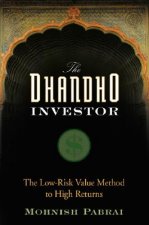
The Dhandho Investor
684 Kč -

House of Rothschild
544 Kč -

ABCs of Real Estate Investing
517 Kč -

House of Rothschild
574 Kč -

Reminiscences of a Stock Operator - Illustrated Edition
616 Kč -

How to Trade In Stocks
518 Kč -

Getting Started in Technical Anaylysis - Comprehensive Coverage
453 Kč -

Fooling Some of the People All of the Time
393 Kč -

Trading Price Action Trends: Technical Analysis of Price Charts Bar by Bar for the Serious Trader
1427 Kč -
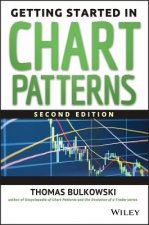
Getting Started in Chart Patterns
500 Kč -
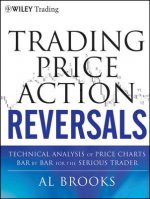
Trading Price Action Reversals - Technical Analysis Price Charts Bar by Bar for the Serious Trader
1427 Kč -

Daily Trading Coach - 101 Lessons for Becoming Your Own Trading Psychologist
826 Kč -

Art and Science of Technical Analysis - Market Structure, Price Action, and Trading Strategies
1970 Kč -

New Trading for a Living Study Guide
855 Kč -

Tower of Basel
410 Kč -

How to Make Money Selling Stocks Short
496 Kč -

Trade Stocks and Commodities with the Insiders - Secrets of the COT Report
1312 Kč -
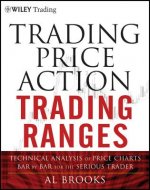
Trading Price Action Trading Ranges - Technical Analysis of Price Charts Bar by Bar for the Serious Trader
1637 Kč -

Fibonacci Trading: How to Master the Time and Price Advantage
2226 Kč -
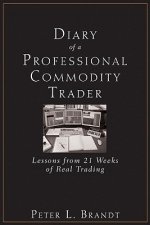
Diary of a Professional Commodity Trader - Lessons from 21 Weeks of Real Trading
793 Kč -
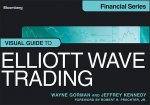
Visual Guide to Elliott Wave Trading
1282 Kč -

For Good and Evil
524 Kč -
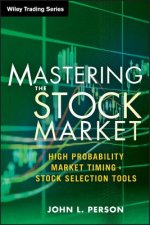
Mastering the Stock Market - High Probability Market Timing and Stock Selection Tools
2052 Kč -

Prüfungsvorbereitung aktuell - Steuerfachangestellte
1018 Kč -

International Loan Documentation Handbook
1603 Kč -

Artificial Intelligence Applications in Banking and Financial Services
2720 Kč -

Candlestick Charts
813 Kč
Osobní odběr Praha, Brno a 12903 dalších
Copyright ©2008-24 nejlevnejsi-knihy.cz Všechna práva vyhrazenaSoukromíCookies


 Vrácení do měsíce
Vrácení do měsíce 571 999 099 (8-15.30h)
571 999 099 (8-15.30h)